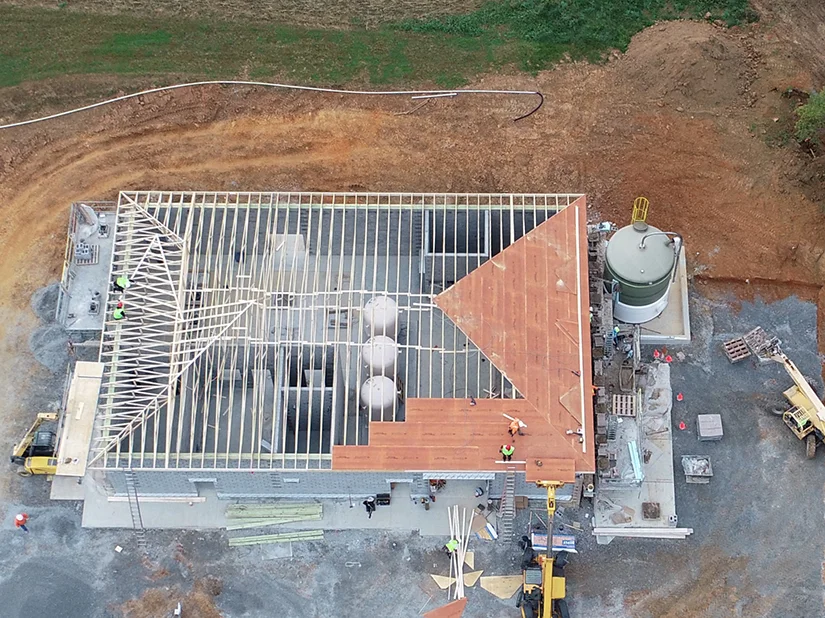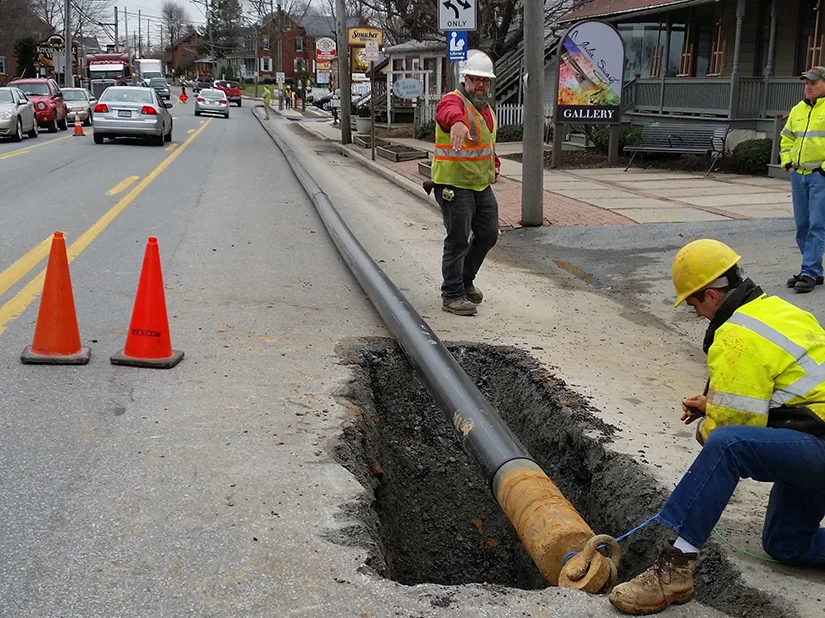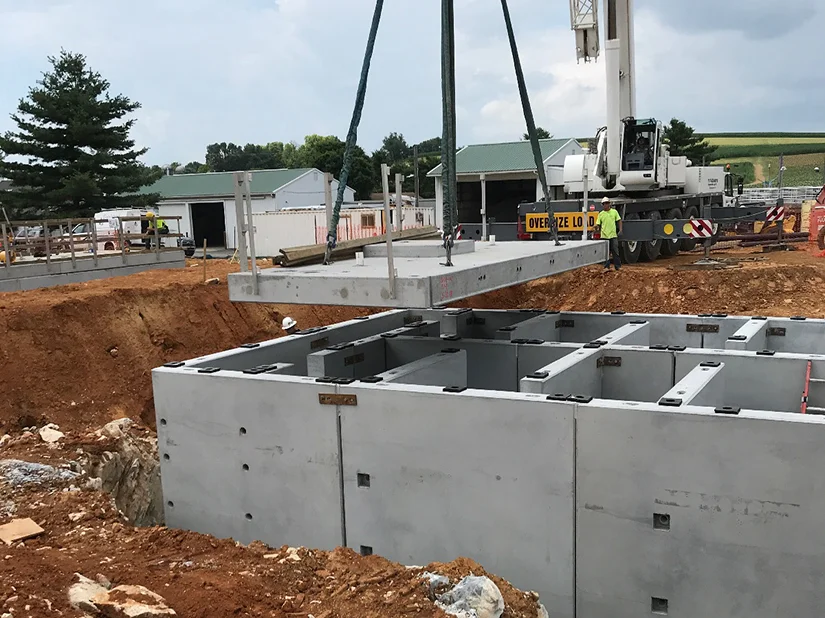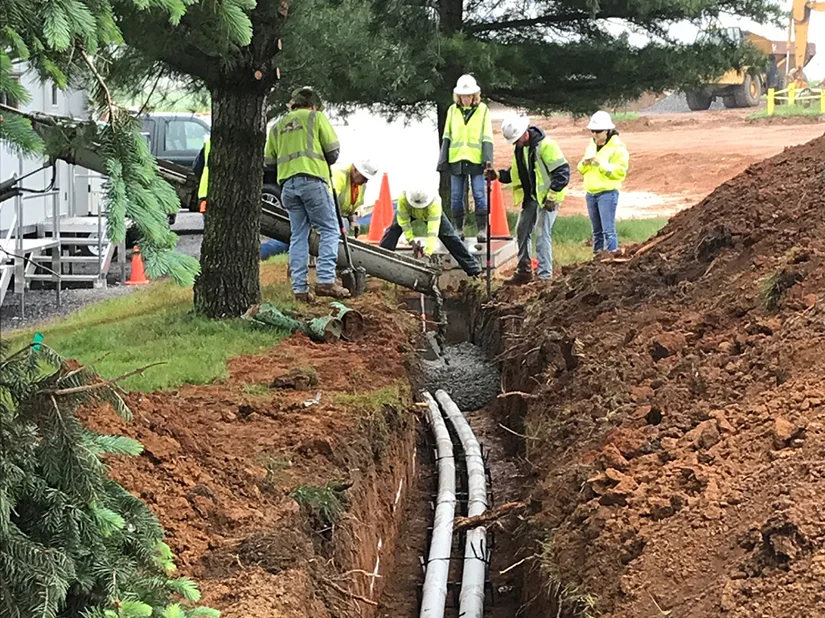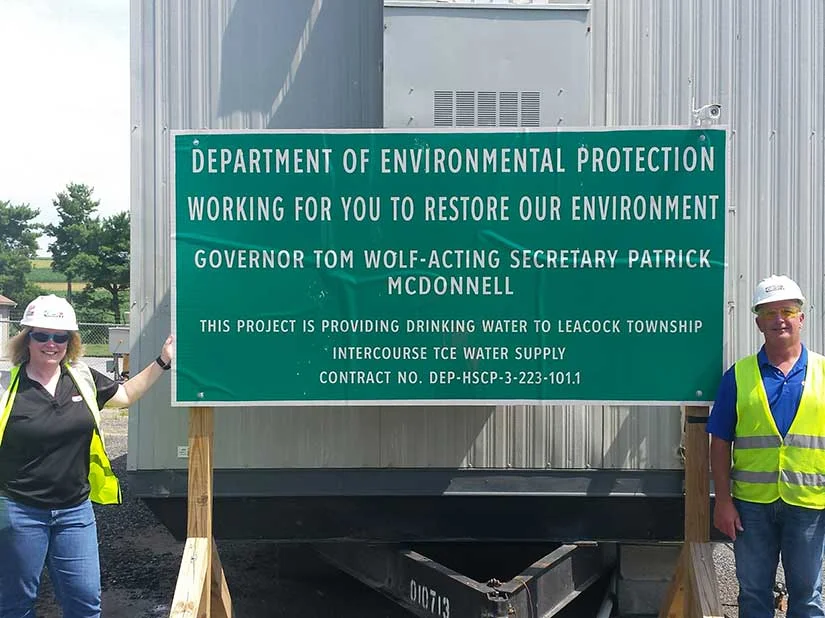TCE Source-Area Study and Public Water System Design
Client Challenge
The identification of a trichloroethylene (TCE) plume impacting groundwater in a village within the “Amish Country” of Pennsylvania pressed the need for immediate investigation and action. Residents in this local tourist and commercial hub relied on groundwater as their sole source of potable water.
GES Solution
GES, as a statewide environmental consultant for the Commonwealth of Pennsylvania, was tasked with rapidly investigating the chlorinated plume in a fractured bedrock setting. A focused approach was used to expedite the site characterization while reducing soil sampling requirements and associated laboratory analysis expense. Methods included the use of field screening and geophysical technologies such as membrane interface probe, borehole logging, and electrical resistivity surveying to help identify the fracture flow network. Where groundwater contaminant levels exceeded regulatory limits, GES installed point-of-entry treatment (POET) systems to protect impacted residents.
In the current project phase, GES is managing the design and construction of a new public water supply system that will connect more than 500 properties and allow for further expansion. Components include three water supply wells, a 900,000 gallon-per-day water treatment plant, 500,000-gallon water tower, and ten miles of distribution pipeline. Compliance and permitting activities have included public water supply permitting, regional multi-state watershed planning commission permitting, local land development plan approval, and state DOT permits for the installation of water lines within a state highway right-of-way. GES performed wetland delineation activities in proximity to the new supply wells to ensure protection of these environmentally-sensitive areas and completed geotechnical evaluations for the new water treatment building. GES also conducted surface-water identification protocol (SWIP) monitoring, as required by the state, to approve the water supply wells for withdrawal. As part of the plume migration investigation, GES will oversee an additional geophysical investigation and deep bedrock monitoring well installation activities. These monitoring wells will be utilized following system startup to determine if the pumping of the supply wells will influence the chlorinated plume.
Client Value
The new public water supply system will provide a permanent, high-quality community water source while delivering greater treatment effectiveness and operational efficiencies. GES’ rapid deployment and use of innovative investigative methods protected local residents and reduced both time and effort for the state, ultimately resulting in taxpayer cost savings. GES developed a cost-effective, remote monitoring system for completion of the SWIP monitoring that benefited the client by saving significant labor and collecting high-quality remote data, saving the client approximately $104,000. Construction of the new water distribution system was completed 13 months ahead of schedule due to efficiencies gained from our construction management approach as well as several engineering field modifications to the design, resulting in an additional $1.2 million in client cost savings. GES was awarded a contract to complete final phase of the project for the construction of the water treatment plant, water tower, water supply wellhead modifications, and water service connections valued at $12.9 million and scheduled for completion in June 2020. GES will also provide a licensed water treatment operator for interim manage the new water systems and assist during the transition of responsibility to local municipal water authority.
